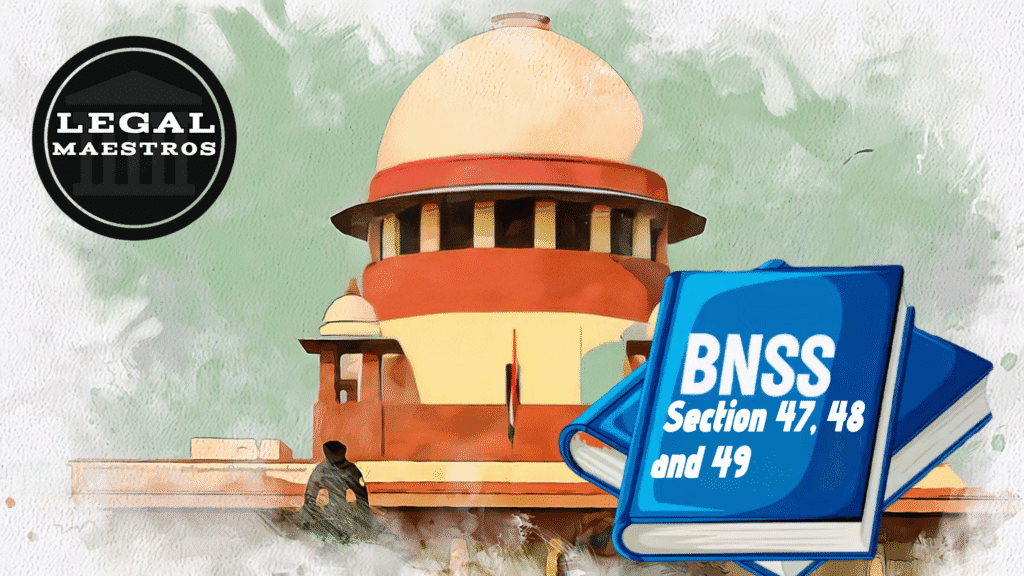
Section 47: Person Arrested to be Informed of Grounds of Arrest and of Right to Bail
Individuals who are arrested without a warrant are afforded the protection of Section 47, which is an essential measure aimed to safeguard their rights. The arresting officer is entrusted with two significant responsibilities as a result of this action.
Reasons for Arrest and Their Communication
As stated in the first subsection, any individual who makes an arrest without a warrant, whether it be a law enforcement official or another individual, is obligated to immediately inform the individual who was arrested about the reasons for the arrest. This comprises a comprehensive description of the offense as well as any other circumstances that constitute the basis for the arrest.
One of the most important words in this context is “forthwith,” which indicates that the communication must be sent without any delay. This ensures that the individual who is being arrested is not kept in the dark about the charges or suspicions that led to their detention in the first place.
For More Updates & Regular Notes Join Our Whats App Group (https://chat.whatsapp.com/DkucckgAEJbCtXwXr2yIt0) and Telegram Group ( https://t.me/legalmaestroeducators ) contact@legalmaestros.com.
A Right to Bail for Criminals Who Are Bailable
According to subsection (2), the arresting officer is required to advise the individual who has been arrested that they have the right to be released on bail if the offense is not a non-bailable one, which means that it is bailable. Additionally, they should be informed that they have the ability to make arrangements for sureties, who are individuals who will take responsibility for their appearance in court.
For example, Ravi is stopped and arrested by a law enforcement official for a bailable offense, which could be something like causing a small injury. A warrant is not in the possession of the officer. In accordance with Section 47, the officer is obligated to immediately explain to Ravi the reason for his arrest and also inform him that he is eligible to be released on bail. Afterwards, Ravi might contact his friend to serve as an assurance for him.
The provisions of this section guarantee that no one will be detained improperly or without being notified of their rights if they are arrested and held in custody. The purpose of this is to prevent unlawful detention from occurring.
Section 48: Obligation of Person Making Arrest to Inform About the Arrest to Relative or Friend
In this area, the focal point is on transparency, as well as the emotional and practical requirements of those who have been arrested. This is a significant advancement in the direction of human rights and the dignity of the individual.
Notifying Family Members or Close Friends
When any arrest is performed in accordance with the terms of this Sanhita, the arresting officer or person is required to promptly tell a relative, friend, or any other person indicated by the person who was detained. This is specifically stated in the first paragraph of the Sanhita. This involves notifying not just the information that the individual has been arrested but also the location where they are being detained.
The individual who is arrested has the ability to name a person about whom they wish to be informed, and the authority holding the arrest must act on this request without delay. The district’s authorized police officer is also required to be informed of the situation.
Notifying the Individual Who Has Been Arrested of This Right
As per the provisions of subsection (2), the police are obligated to inform the individual who has been detained about his right to have someone informed of his arrest and whereabouts once the individual has been transported to the police station. This ensures that the person who is being arrested is aware of the situation and has the ability to make a decision.
Log entry in the police records
The police station is required to keep a book in accordance with the provisions of subsection (3), in which the information regarding who was told about the arrest must be noted. It is the responsibility of the State Government to establish the guidelines that will govern the format of this book.
Responsibility of the Magistrate to Ensure Compliance
In accordance with subsection (4), the Magistrate is tasked with such responsibility. In the event that the individual who was arrested is brought before the court, the Magistrate is obligated to verify that the police have carried out their responsibilities as outlined in subsections (2) and (3). It is possible that the Magistrate will take the required action if these processes are not followed.
For example, Suta is taken into custody for a crime that is eligible for bail. During her visit to the police station, she advises the officer to convey the news of her arrest to her husband. In addition to informing the husband, the officer also makes a note of this information in the arrest record book. After some time has passed, the Magistrate will review the record to verify that this prerequisite has been satisfied before taking any further action.
For the duration of the traumatic experience of being arrested, this part ensures that no individual is cut off from their support system. This not only encourages accountability but also makes certain that families or other close relatives are constantly informed.
Section 49: Search of Arrested Person
A person can be searched after being arrested, and this section discusses when and how that can happen. In addition to ensuring that the dignity of the individual is preserved, it also presents law enforcement with the opportunity to acquire evidence or remove potentially hazardous things.
Prerequisites for this search
A search may be carried out in the following circumstances, as stated in the first subsection of the Constitution:
When an individual is taken into custody on a warrant that does not include a mention of bail.
in the event that the warrant includes a reference to bail yet the individual does not post bail.
In the event that a person is arrested without a warrant and is either unable to post bail or cannot legally be released on bail, the person is detained.
In situations like these, the officer who made the arrest or the officer to whom a private person passes over the person who was detained is authorized to search the subject. It is possible to take custody of any and all objects discovered on the person, with the exception of clothing that is essential.
The provision of a receipt by the police to the individual who has been detained for any items that have been seized is a necessity that is of grave importance. Each and every item that has been taken must be identified on this receipt.
Finding Women Who Have Been Arrested
Individuals who are arrested as females are afforded greater protection under subsection (2). In order to conduct a search on a woman, additional women are required to perform the search. It is imperative that this search be carried out with the utmost respect for decency. In order to maintain the woman’s dignity, it is imperative that the process be carried out in a manner that is both private and respectful.
An example of Ramesh being arrested without a warrant for a crime that does not allow him bail is provided below. In light of the fact that he is unable to post bail, the authorities examine his pockets and discover a knife lying there. In addition to taking possession of it, they provide Ramesh with a receipt that details the item. As everything is going on, Meena is taken into custody in another case. According to the law, the search is carried out in a private room by a female policeman during the search.
By ensuring that the procedure of searching an arrested individual does not become harassing, this provision ensures that the process is carried out. By doing so, it strikes a balance between the fundamental rights of individuals and the necessity of law enforcement.
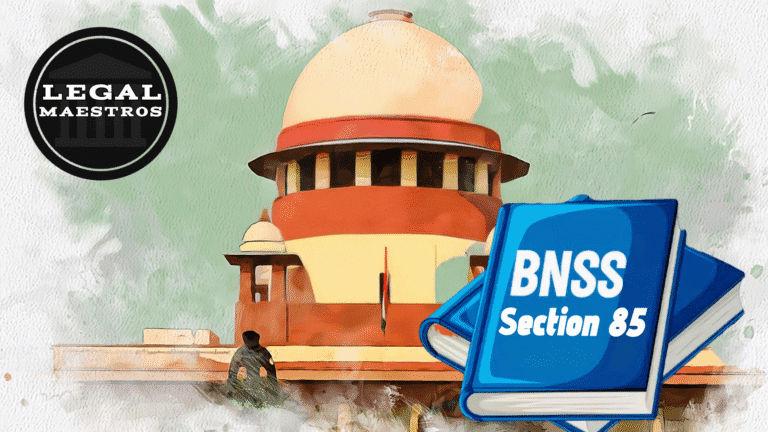
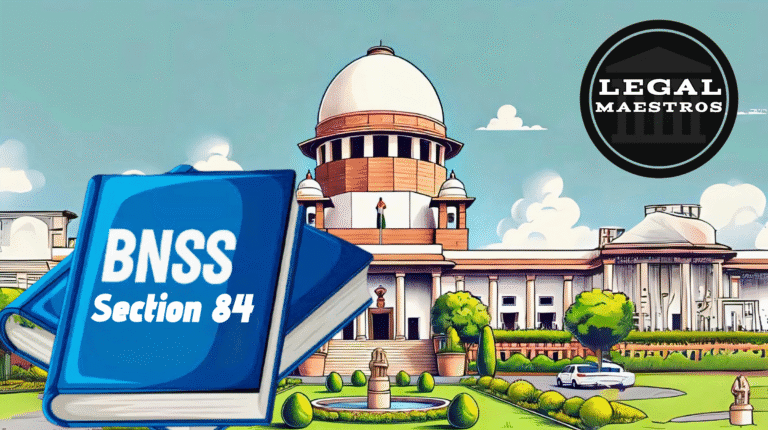
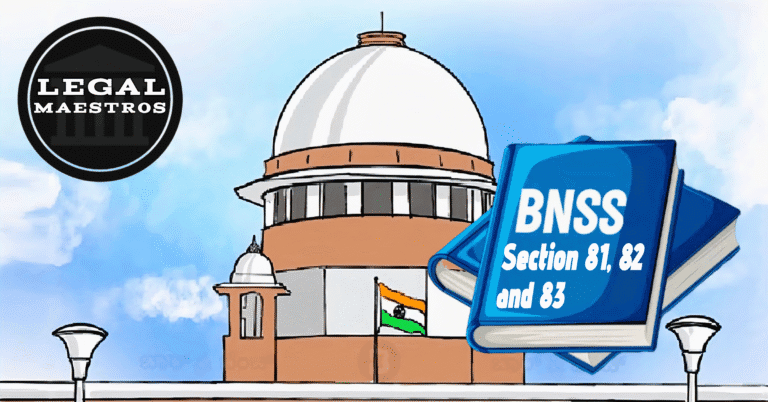



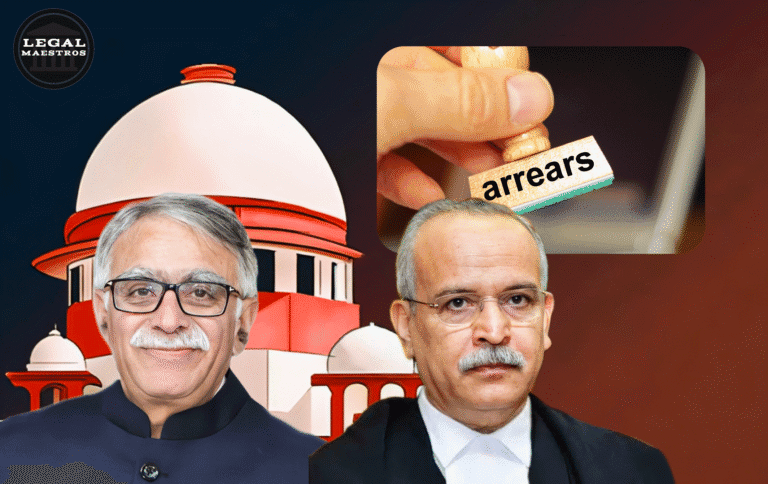
1 thought on “Sections 47, 48 & 49 – Rights and Procedures on Arrest and Search under Bharatiya Nagarik Suraksha Sanhita, 2023”